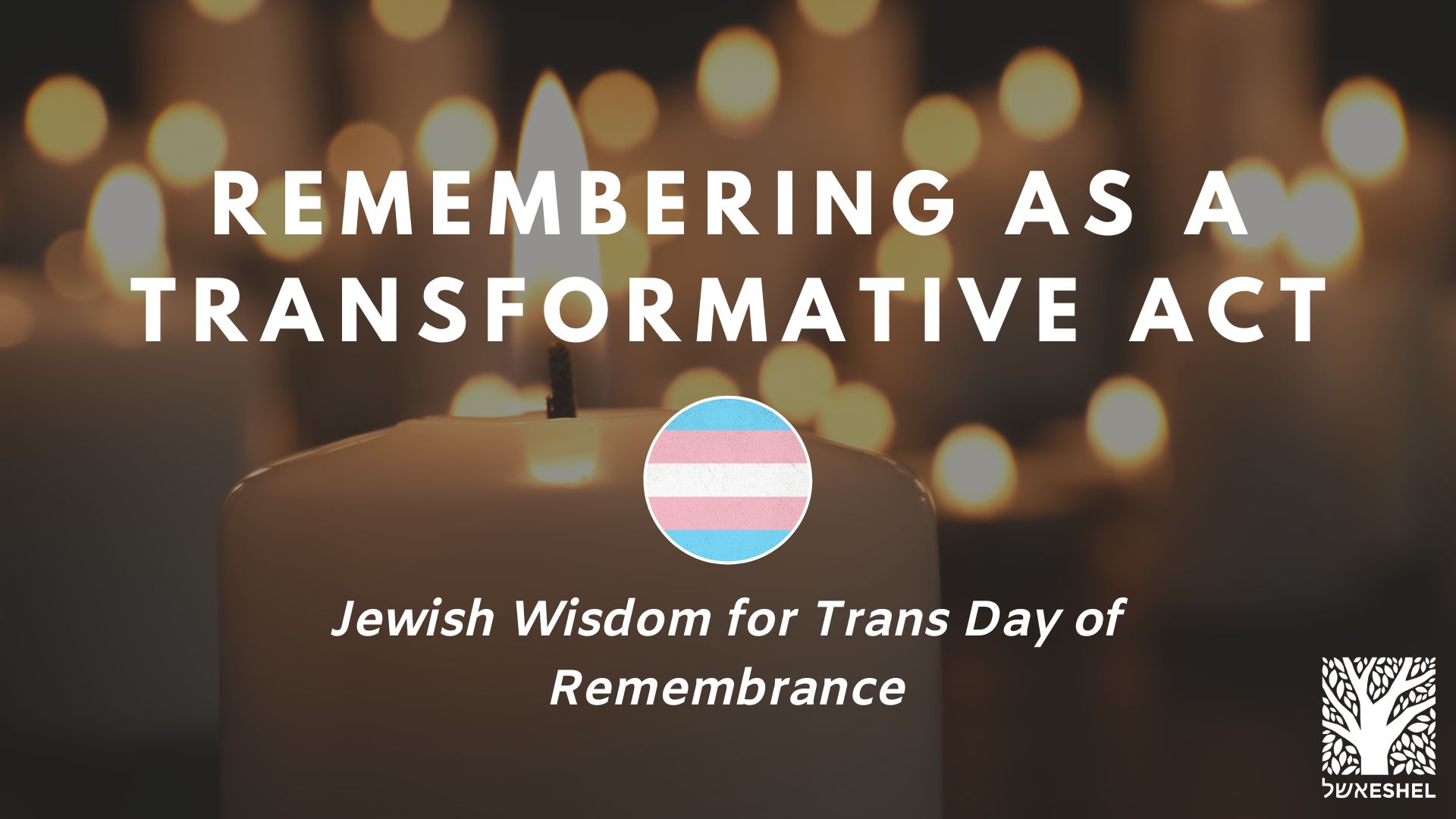
Remembering those who have died is a communal activity in Judaism. Not just at funerals and shiva, where the community bands together in a big way immediately after someone dies, but also in saying Kaddish with a minyan, at least 10 community members, for the entire first year, as well as Yizkor according to Ashkenazi tradition. We come together on Yom HaShoah to remember victims of the holocaust, even those of us without a direct family connection to remember. We communally mourn ancient losses and tragedies on Tisha B’av.
Trans Day of Remembrance also draws on the power of communal remembrance. We (everyone, but particularly the queer and trans community) remember transgender people lost to anti-trans violence. Tragically, that number is too high year after year. You can read about the individual people who passed away here. Transphobic violence, and especially transmisogynistic violence, disproportionately affects trans people of color as well as people with other intersecting marginalized identities. Some of us are safer from material danger, but all of us should care about protecting those who are most vulnerable. If we have the ability to call out the injustices, big and small, that lead to a culture of transphobia, including anti-trans violence, we have the responsibility to do so. These are our siblings, and we need to care for and remember them as such.
The act of remembering is transformative. Our tradition teaches that doing good deeds in the merit of the people who have passed helps their soul in Olam Haba, the world to come. Even in this life, remembering those who have died and performing mitzvot in their honor helps us to fulfill our obligation of nichum aveilim, bringing comfort to mourners. When people feel inspired by someone’s passing to put good into the world, that memory is not just an artifact of the past – it becomes an action in the present. Whether that action is giving charity, lending a supportive ear, volunteering for a cause that was important to them, this creates a ripple effect of change and light for the future.
Every member of the community has a role to play in providing comfort to the mourners and honoring the neshama, or soul, of the person who has passed. Those closest to the deceased might share personal stories and wisdom we can learn from. Neighbors might show support by coming to minyan when they otherwise wouldn’t have. A friend on the other side of the country might donate to a charity that was meaningful to them. A stranger who read about them might decide to be kinder to the people in their own life. All these people play a valuable role in grieving as a community. In remembering, in transforming, in growing.
I don’t personally know any trans people who died by anti-trans violence, and I am grateful for that fact. However, I also believe that distance means I am responsible for making the effort to remember this year’s victims, and holding that communal grief close, so I can put some light into the world in their honor. Some actions you can take this Trans Day Of Remembrance include saying Kaddish D’Rabbanan, donating to a local charity benefiting the trans community, calling your elected officials to demand trans healthcare becomes or remains accessible, lighting a Yahrzeit candle, and showing up on a personal level for the trans people in your own community. Together, we mourn the dead and we fight for the living.
– Jamie
